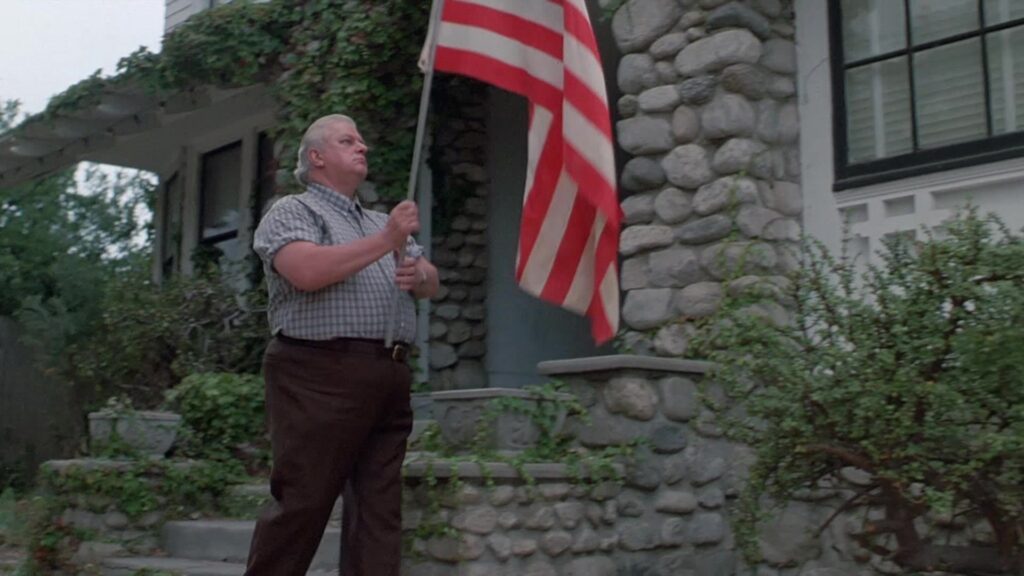
Stand Alone (1985) stars Charles Durning as WWII veteran Louis Thibadeau who witnesses a murder and becomes embroiled in an all out battle with the criminals. Released during the heyday of Reaganism, Stand Alone predicted the ideologies of conservative survivalist splint groups of the Trump era. Stand Alone trades on the same “get off my lawn” mentality as Gran Torino (2008) but couched in the post-Manson paranoias of Straw Dogs (1971) that ultimately leads to a kind of glorification of the Second Amendment.
Durning’s doughnut loving war hero is a caring grandfather who has spent the better part of his adulthood reeling from the traumas of war. As such, Thibadeau epitomizes an old school masculinity made fragile in old age as the body gives out. Thibadeau’s one-man pursuit of justice is a reluctant one that doesn’t find its motivation until his family is threatened. The family, that great bastion of American decency of the fifties, is the one thing Thibadeau can bring himself to fight for.
Reagan’s call for a regression to the values and prosperity of the fifties is central to the fantasy of Stand Alone and its stubborn protagonist. The American family as an ideological concept, and extension of the same American romanticism as Manifest Destiny, was central to Reagan’s rhetoric. That conceptual centrality forms the narrative nexus of Stand Alone. The film suggests that there is no greater act of patriotism than to defend one’s family; essentially internalizing the externalized political and social ideologies of national supremacy that led to America entering WWII.
This internalization and personalization of American patriotism was a result of the national disillusionment that accompanied the Vietnam War, Watergate, and the Civil Rights Movement that saw the conservative right gradually shift right wing discourse into the intimate sphere of the American household. Thibadeau is the antecedent of Home Alone‘s Kevin McCallister in so far as representing a centralized form of nationalism rooted in the social complex of the nuclear family that exists, ideologically, as the foundation of Reagan era conservatism.
Well acted as it is, Stand Alone never rises above its propagandist trappings. Stand Alone is far more transparent in how it propagates conservative values than Home Alone since it is utterly devoid of the superficial charms of John Hughes’ sentimentality. Stand Alone is a film of tough guys shouldering a burden that subsequent generations fail too, at least by their standards. Stand Alone is a disturbing little curio of a film that feels urgently relevant today; a signpost from the eighties of horrors to come.
